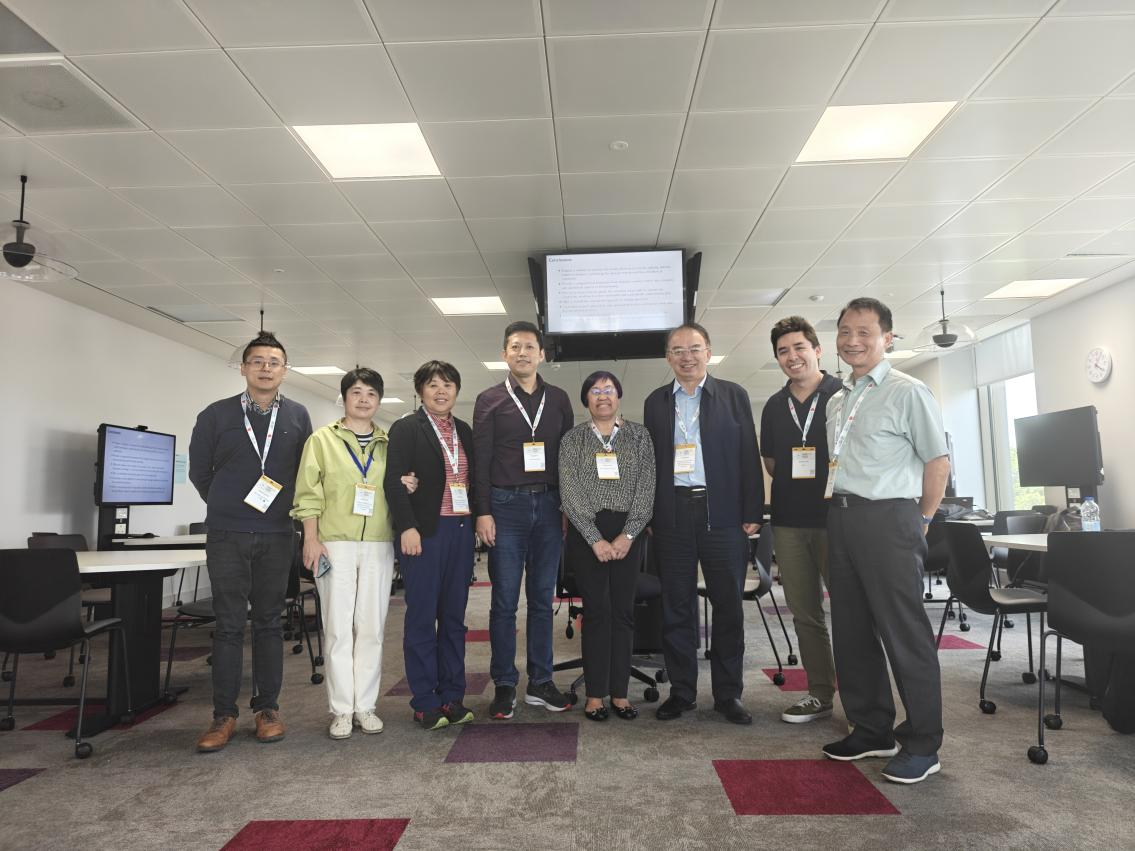

Publish Date:2025-07-14 View:10239
During the 34th European Conference on Operational Research (EURO 2025), the forum "Challenges of Operations Research in Developing Countries," jointly organized by Professor Yuhong Dai, Vice President of the International Federation of Operational Research Societies (IFORS) and President of the Operations Research Society of China (ORSC), and Professor Janny Leung, Past President of IFORS, from University of Macau was successfully held in Leeds, UK. This forum invited eight experts and scholars from China, India, Australia, Poland, the United States, Uruguay, and other countries to engage in in-depth discussions on the application and challenges of Operations Research (OR) in the social development of developing countries. It served as a vital platform for global exchange and collaboration within the OR community.
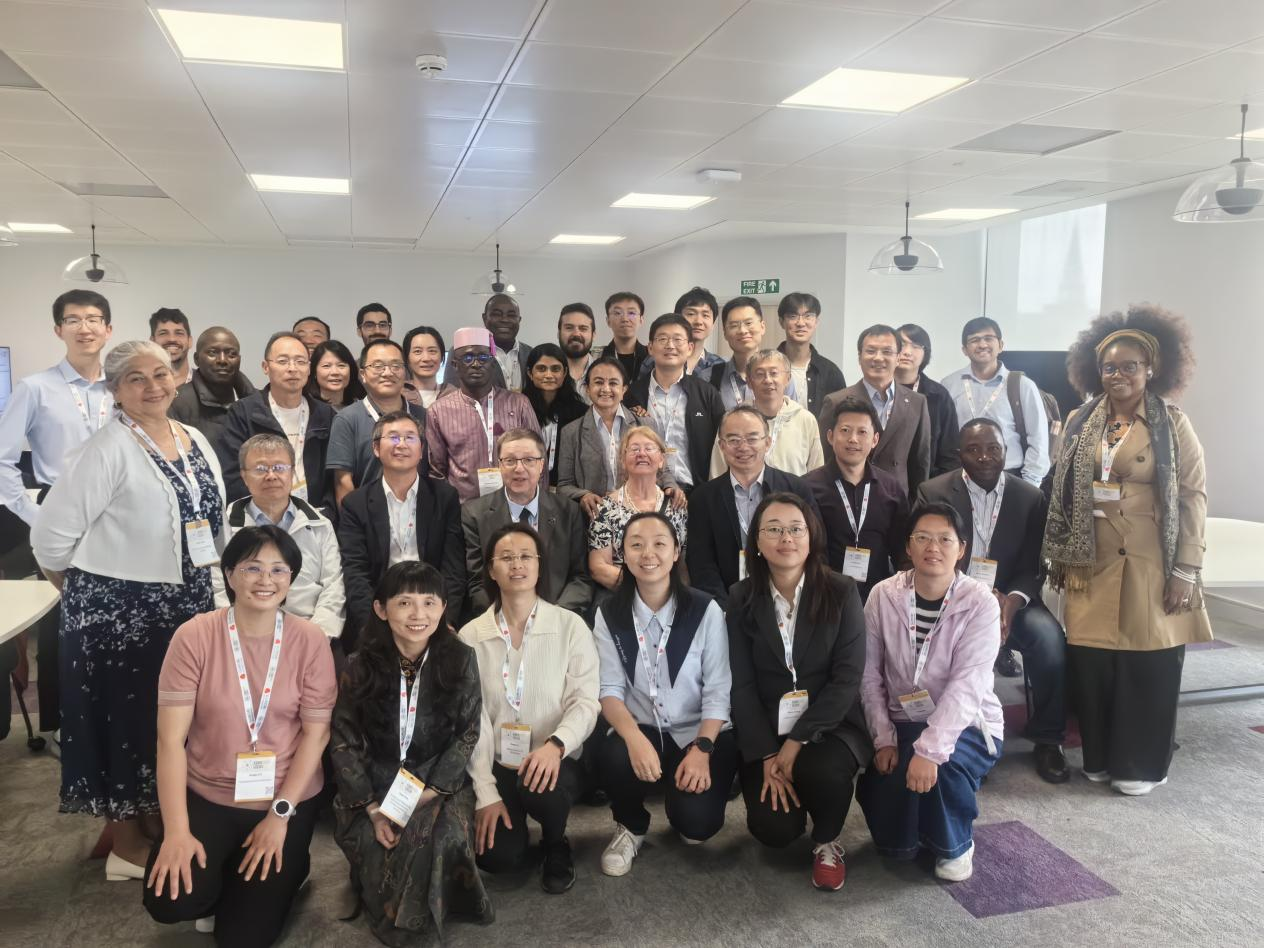
Professor Ya-xiang Yuan, Academician of the Chinese Academy of Sciences, reviewed the development of OR in China. He highlighted the significant advances made in recent years in OR education, research, and application within China, particularly with the strong support of the National Natural Science Foundation of China (NSFC), which has fostered numerous projects and cultivated high-level talent. Professor Yuan also emphasized the new opportunities and challenges presented to OR by the rapid development of artificial intelligence and data science. He called upon the OR community to actively respond, promote interdisciplinary integration, and provide stronger support for societal development.
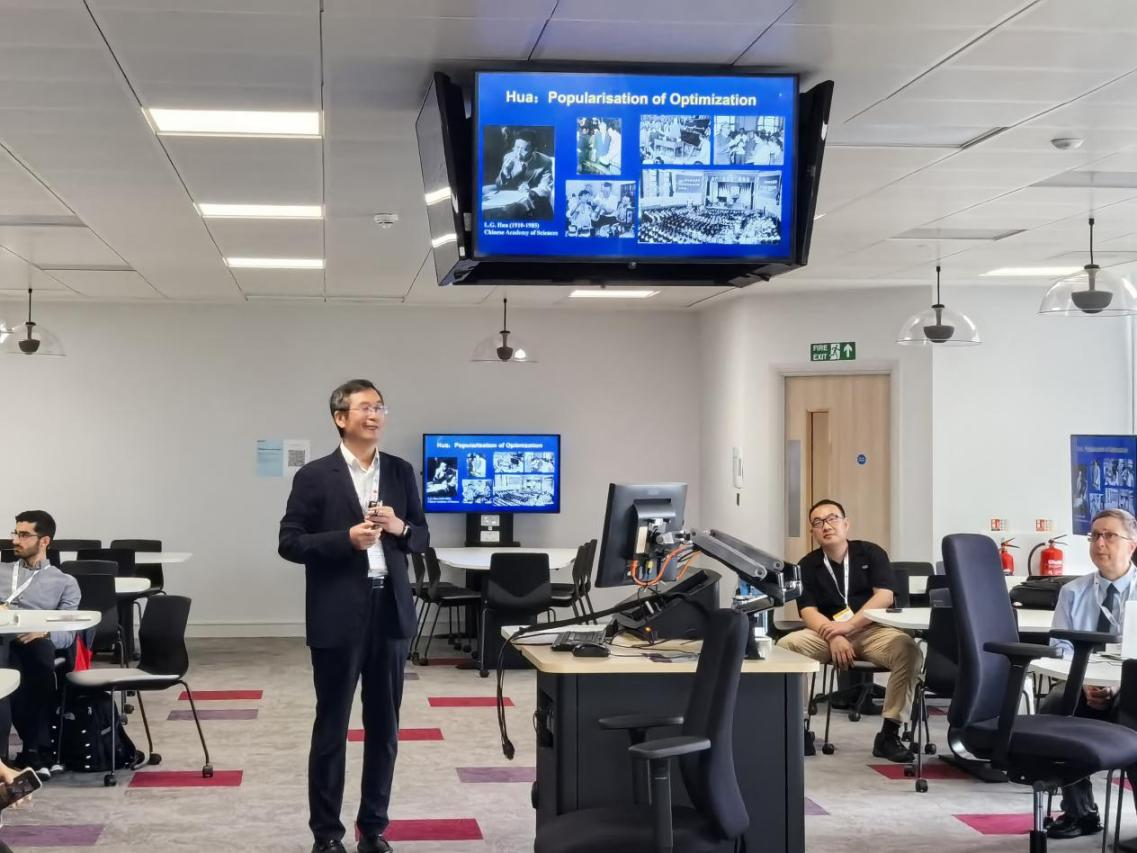
Professor Gerhard-Wilhelm Weber, representing the EURO Working Group on Operational Research for Development (EWG-ORD) of the Association of European Operational Research Societies (EURO), shared their experience in promoting the application of OR in development areas. Since its establishment in 2006, EWG-ORD has actively promoted the role of OR in improving the lives of people in both developing and developed countries through organizing annual workshops and setting up sessions at EURO, IFORS, and other international conferences. They also introduced the "Developing Countries Online Resources" platform of IFORS, which provides extensive free resources for the global OR community, with over one million visitors, offering important support for OR research and application in developing countries and promoting cooperation and exchange among global OR communities.
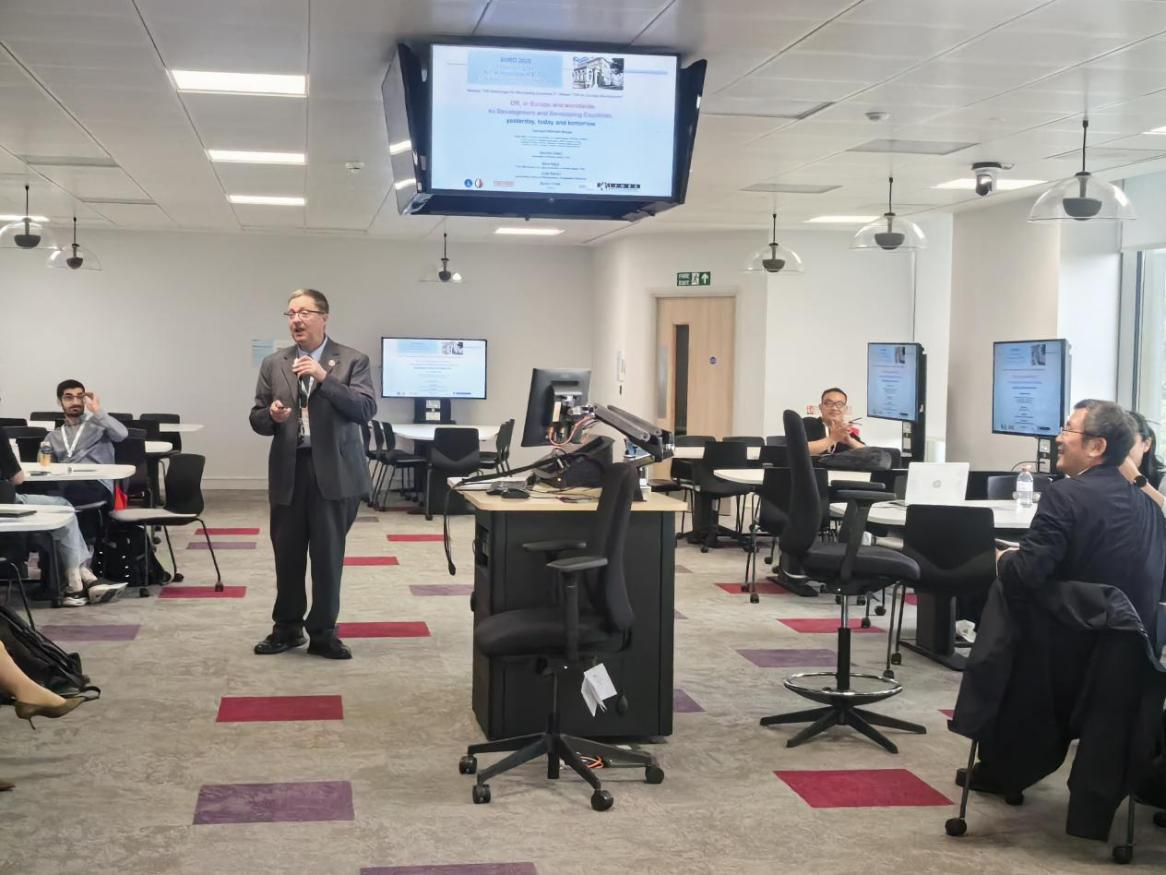
Dr. Jinal Parikh from India discussed the challenges faced by India in decoupling economic growth from carbon emissions. India plans to achieve carbon neutrality by 2070 and reduce GDP carbon emission intensity by 45% by 2030. However, with rapid economic growth, carbon emissions continue to rise. The study analyzed the decoupling of economic development and carbon emissions in various regions of India using the Tapio index and the LMDI model, pointing out that industrial centers and coal-dependent regions face greater decoupling pressure. They called for India to accelerate industrial restructuring and transition to clean energy to achieve sustainable development goals.
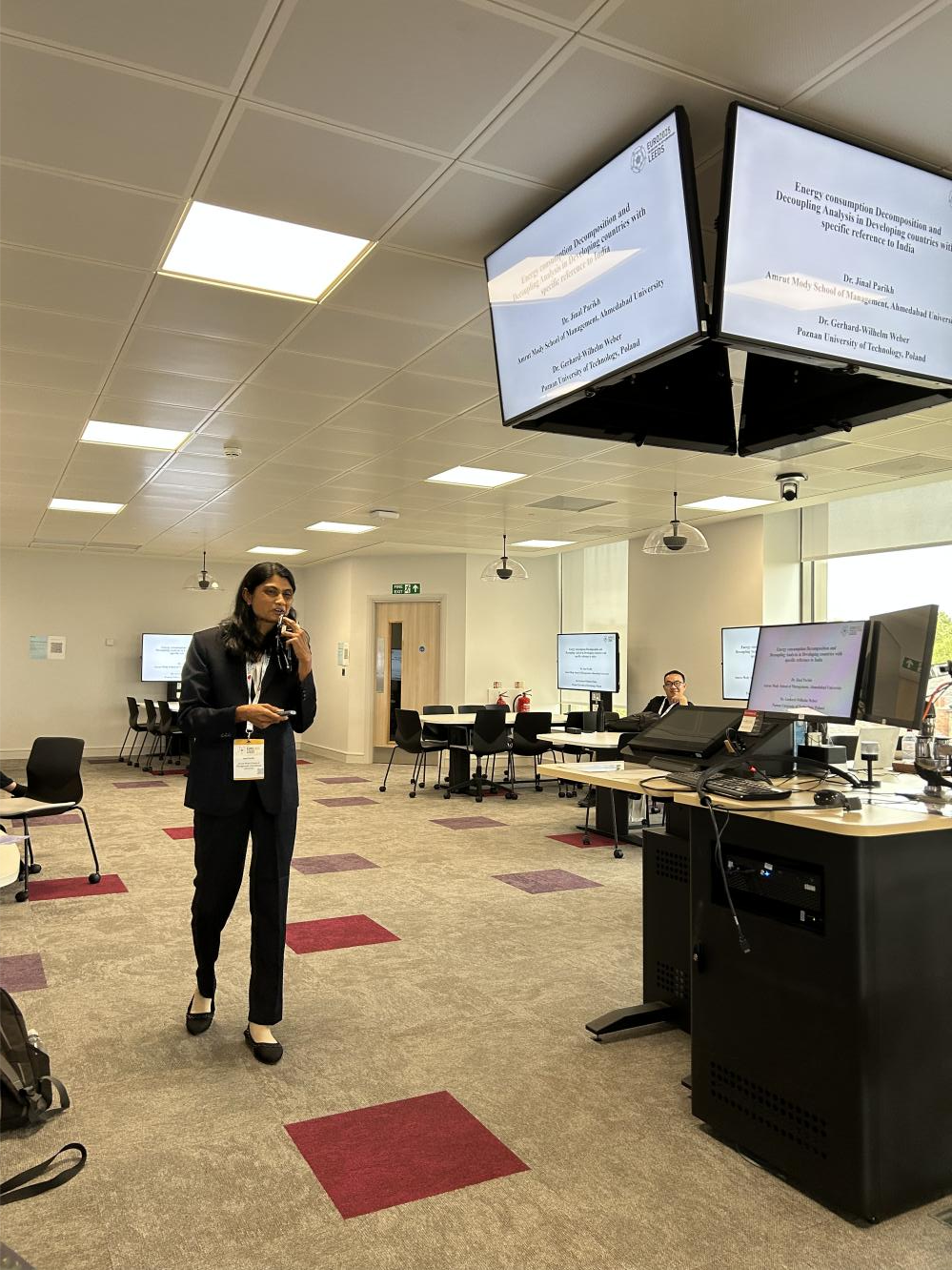
Professor Honglei Xu, President of the Association of Asia-Pacific Operational Research Societies (APORS) from Curtin University, Australia, presented optimization strategies for mine planning in the Australian mining sector. He proposed a novel optimal control framework for optimizing open-pit shells and introduced a new rolling horizon control approach for mine planning. These optimization methods integrate the practical workflow of open-pit mining with real-world operational and geological constraints. Numerical simulations demonstrated the effectiveness and practicality of the proposed methods, providing technical support for the sustainable development of Australia's mining industry.
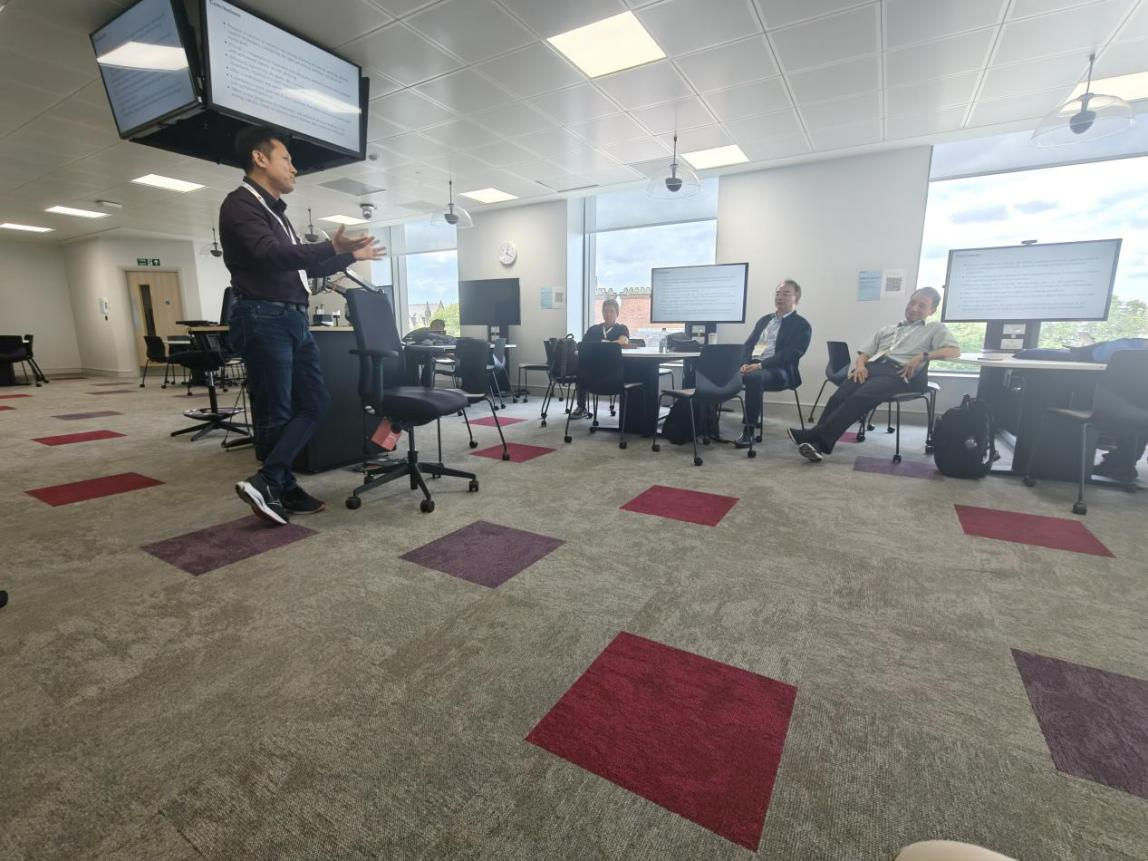
Professor Yuhong Dai, Vice President of IFORS and President of ORSC, systematically traced the development of integer programming in China since the founding of the People's Republic, beginning with ancient Chinese mathematical thought. He emphasized the rich experience accumulated by China since the 1990s in developing integer programming solvers and their practical applications in industries such as telecommunications, logistics, and energy. He shared a series of exemplary success cases from China in this field. Addressing the development trends of emerging technologies like artificial intelligence, Professor Dai analyzed the challenges and opportunities facing integer programming. Finally, he outlined the application potential and research directions for integer programming in developing countries, calling for strengthened international cooperation to advance research and contribute to the progress of global OR.
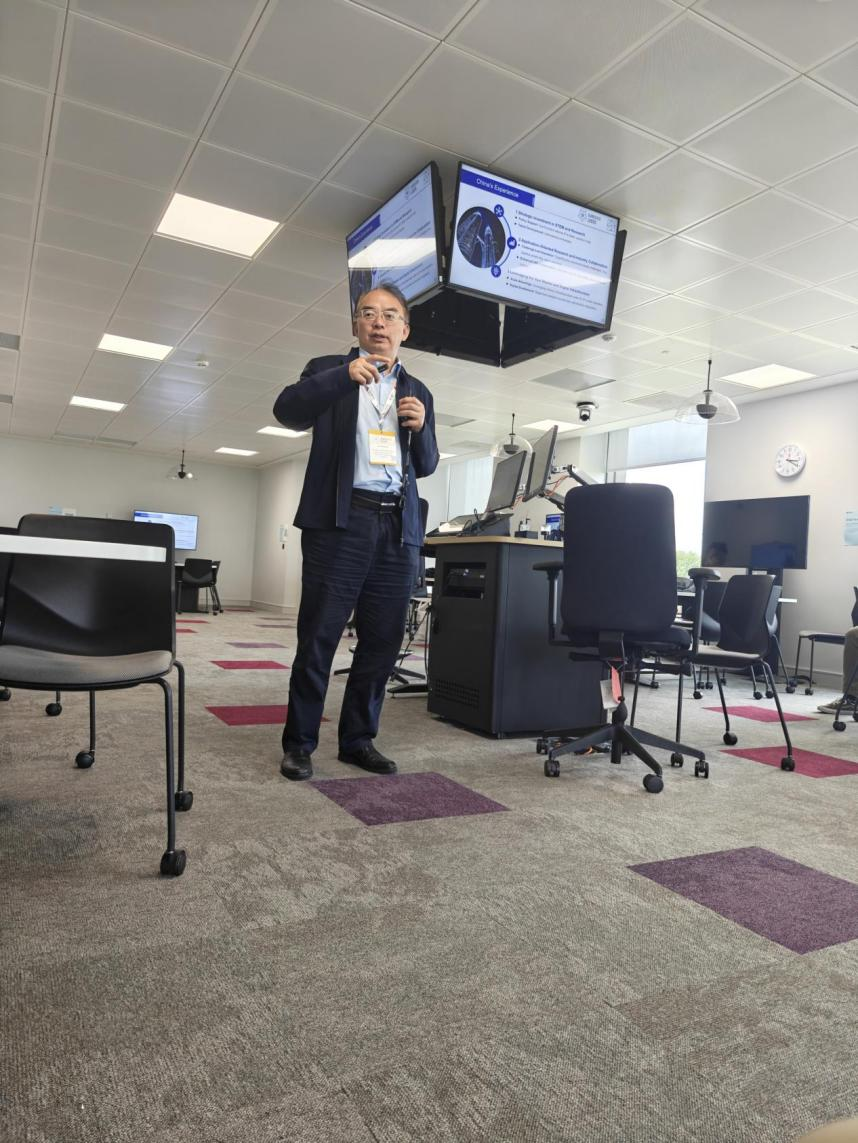
Professor Andres Cristi from the University of Chile discussed the design and implementation of Chile's newly established school choice system. The system handles applications from over 500,000 students for approximately 10,000 schools each year, covering all school grades from pre-kindergarten to 12th grade. The Chilean system faces unique design challenges, including nationwide simultaneous enrollment and prioritizing the assignment of siblings to the same school. By improving traditional stable matching algorithms, Chile's school choice system has achieved significant results in fairness and social welfare, providing valuable experience for educational system reforms in other countries.
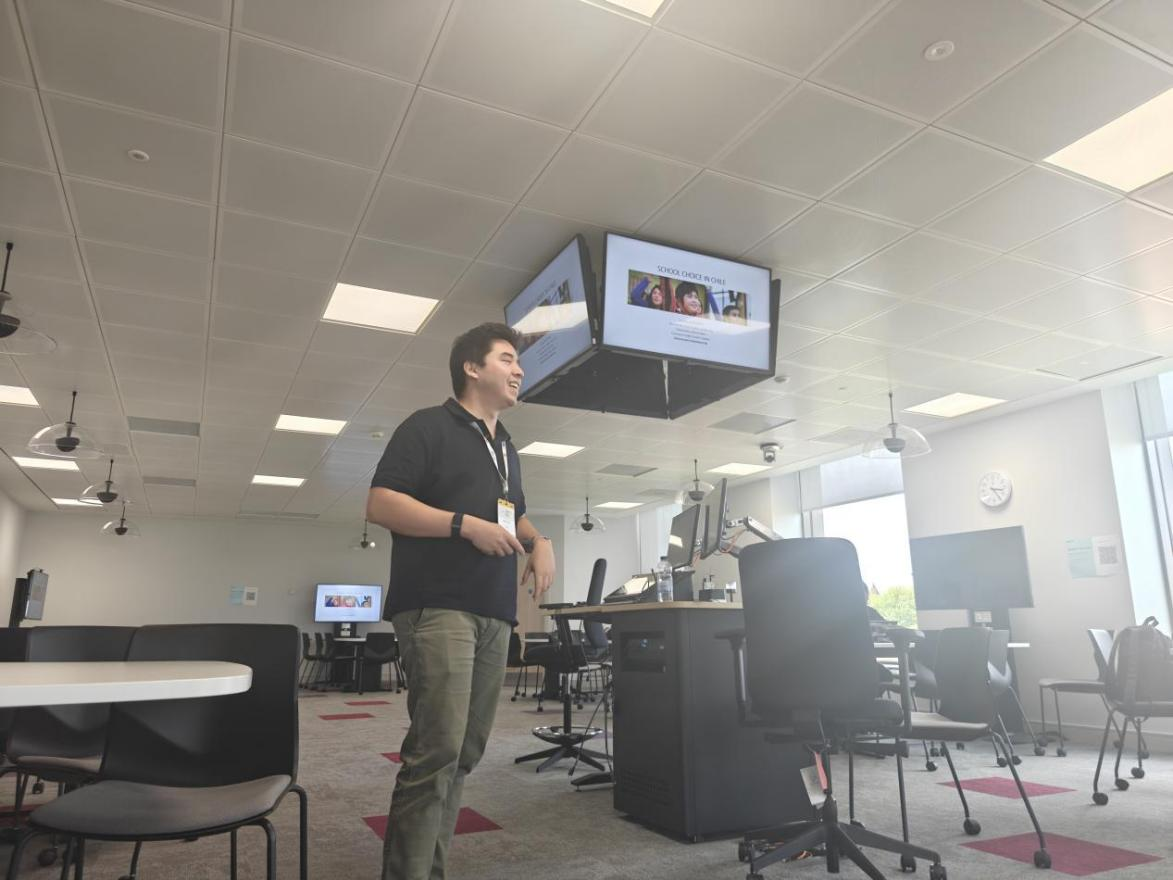
Professor Senay Solak from Purdue University and her team studied the operational decision-making of for-profit service providers under two popular service-focused social welfare programs—vouchers and contracted slots. Voucher programs allow beneficiaries to redeem vouchers at any participating private service provider, while contracted slot programs require high-quality providers to reserve a fixed number of slots for beneficiaries. The study compared the equilibrium outcomes under the two program types and provided guidance for governments to design social welfare policies, aiming to improve overall social benefits while ensuring alignment with the incentives of for-profit service providers.
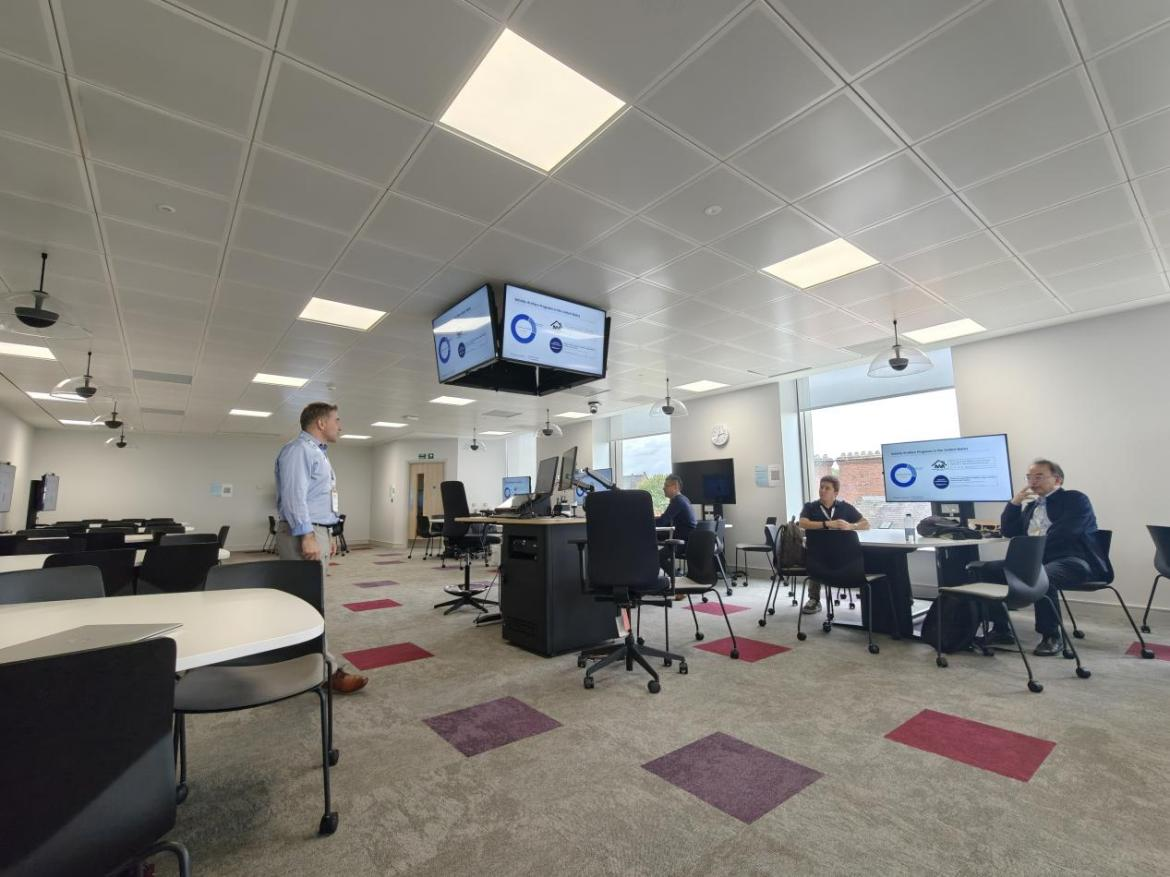
Professor Héctor Cancela from the Uruguay Institute of Engineering was originally scheduled to present his project on employment allocation for persons with disabilities, conducted with the Civil Service Department of Montevideo, at the forum. Unfortunately, due to a scheduling conflict, he was unable to attend in person to deliver this report.
Approximately 50 participants attended the forum, including Professor Bo Chen from the University of Warwick (UK), Professors Xiaoguang Yang and Guiying Yan from the Academy of Mathematics and Systems Science, Chinese Academy of Sciences, and Professor Yong-Hong Kuo, President of the Hong Kong Operational Research Society, from The University of Hong Kong. The forum not only showcased the diverse applications of OR across different countries and regions but also underscored its crucial role in promoting sustainable societal development. The participating experts unanimously agreed that through international cooperation and interdisciplinary research, OR can provide robust support for addressing global challenges and make greater contributions to societal progress.
